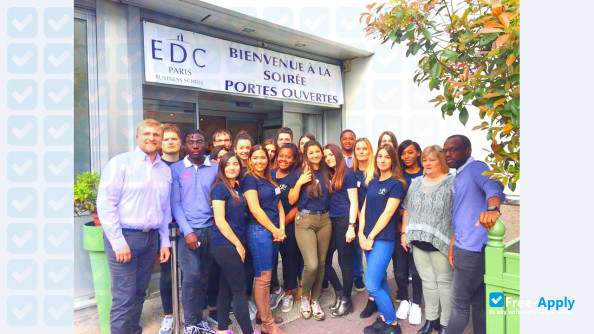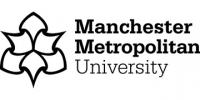MSc Human Nutrition
Through this one-year course, you’ll develop the skills and knowledge to work as a nutritionist in both the health and food sectors.
You’ll study the theory behind nutritional sciences, exploring topics from food guidelines to biochemistry to the distribution and control of disease. You’ll also have sessions in our laboratories where you’ll complete practical evaluations.
During practical sessions, we’ll help you to understand the assessments you might conduct as a nutritionist. We use patient case studies, so you might complete a nutritional assessment for a patient with Crohn’s disease or Diabetes, or perhaps analyse a person’s diet.
Many of our students complete public health nutrition-based projects for their dissertations, focusing on areas they’re hoping to develop a career in. Recent topics include how diet and calorie intake might affect the efficacy of chemotherapy treatment and exercise barriers for young women.
Our MSc Human Nutrition course is an Association for Nutrition (AfN) accredited course. This means that when you graduate, you're eligible to apply for direct entry to the UK Voluntary Register of Nutritionists (UKVRN) Register as a Registered Associate Nutritionist (ANutr).
Our Human Nutrition course aims to provide you with an in-depth understanding of the relationships between diet, disease and health.
It’s designed to give you the skills to analyse and critically evaluate nutrition and food science theory and practice, so that you can develop a career as a nutritionist in the health and food sectors.
On this one-year course, you’ll have days with a mix of lectures, seminars and practical sessions.
Topics you might cover in practicals include dietary assessments, clinical nutrition to help people understand health conditions such as diabetes, and how to assess nutritional status.
You’ll also learn about ethics for scientific research, research methodologies and statistical analyses, including how to appraise scientific research studies.
This is to introduce you to methods you’ll most likely use in your future career, as well as to prepare you for the independent research study you’ll conduct for your final assessment.
For your dissertation, you’ll typically submit a 2,000-word research proposal and a 16,000-word dissertation with your research findings.
Our academic team at Manchester Met includes registered nutritionists, food scientists and a dietitian. Many conduct research projects in their area of expertise, and you’ll normally have the opportunity to volunteer to help with projects.
Recent research projects include 5:2 diet studies in managing acute disease outcomes, a community project to encourage residents to grow and eat their own food, and an assessment of diet quality among young people (29-39-year-olds) in Greece and the UK using Mediterranean diet score (MDS) and Diet quality index-international (DQi-I) indices.
Campus Information
Manchester campus
In the city centre, our Manchester Campus is well connected by many types of transport. Where possible, we encourage the use of walking or cycling to access the campus.
Intakes
- Sep
Application Processing Time in Days: 20
Application Process
Minimum English Language Requirements
| English Level Description | IELTS (1.0 -9.0) | TOEFL IBT (0-120) | TOEFL CBT (0-300) | PTE (10-90) | |
|---|---|---|---|---|---|
| Expert | 9 | 120 | 297-300 | 86-90 | |
| Very Good | 8.5 | 115-119 | 280-293 | 83-86 | |
| Very Good | 8 | 110-114 | 270-280 | 79-83 | |
| Good | 7.5 | 102-109 | 253-267 | 73-79 | |
| Good | 7 | 94-101 | 240-253 | 65-73 | |
| Competent | 6.5 | 79-93 | 213-233 | 58-65 | |
| Competent | 6 | 60-78 | 170-210 | 50-58 | |
| Modest | 5.5 | 46-59 | 133-210 | 43-50 | |
| Modest | 5 | 35-45 | 107-133 | 36-43 | |
| Limited | 4 | 32-34 | 97-103 | 30-36 | |
| Extremely Limited | < 4 | < 31 | < 93 | < 30 |
Job Opportunity Potential
We are a great, modern university, in a great global city, here to make an impact on Manchester, our nation and beyond, with a driving ambition to discover and disseminate knowledge, and make higher education accessible and beneficial to all those with the passion and ability to succeed.
Our campus is designed around the student experience, providing our students with high quality teaching in a friendly and supportive environment and with some of the best learning facilities in the UK.
We work closely with our city, with business, the community and our academic peers – locally, nationally and internationally – to be inventive and creative, generate great opportunities, and enable our students, colleagues and everyone whose lives we touch to make an impact.
We offer fantastic opportunities for both academics and those working in professional support roles. Our faculties are vivid communities and experimental workshops, vibrant spaces in which you can contribute, challenge and create. Communities in which you’ll innovate, experiment and grow.
Manchester is more than just a city. It’s a fashionable and exhilarating place to live, a cultural hub championing diversity, an urban centre built on a fascinating history and a world-leading powerhouse in business and academia. All in all, it is an exciting time to join Manchester Metropolitan University.
PSW Opportunity
2 Years PSW is applicable after the course completing (Bachelors level or above)
Admission Requirement / Eligibility Criteria
You will have a minimum 2:2 undergraduate degree in a bioscience subject. A recent relevant bioscience–based degree is desirable, however, students without a bioscience-based degree may be eligible if they can demonstrate a sound underpinning knowledge in the biosciences.
Overseas applicants will require IELTS with an overall score of 6.5 with no less than 5.5 in any category, or an equivalent accepted English qualification.
For More Information Please Connect Our PSA Counselor
- Course Type: Full Time
- Course Level: Masters/PG Degree
- Duration: 01 Year
-
Total Tuition Fee:
16500 GBP
Annual Cost of Living: 9207 GBP
Application Fee: N/A
Similar Programs
- MPH Global Public Health at Manchester Metropolitan University
- MSc Computer Science at Manchester Metropolitan University
- MSc Artificial Intelligence at Manchester Metropolitan University
- MSc Advanced Materials at Manchester Metropolitan University
- MSc Zoo Conservation Biology at Manchester Metropolitan University
- MSc/PgDip Sport Nutrition at Manchester Metropolitan University

